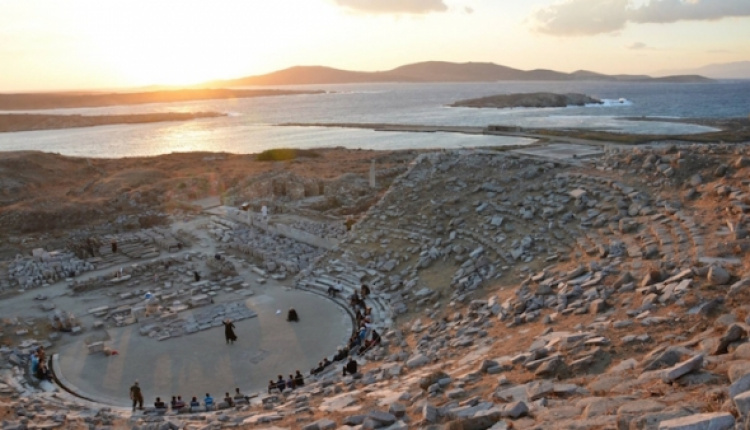Greek Theatre Hosts Play For Refugees After 2,100 Years
- by XpatAthens
- Tuesday, 11 October 2016

Despoina Bebedeli, a renowned actress, starred in Hecuba, a Refugee, which was the first play performed in an ancient theatre on the uninhabited Greek island of Delos in over than 2,100 years.
The play, which is based on two monologues written by Athenian tragedian Euripides, tells the tale of Hecuba, the queen of fallen Troy who as a captive mourns the loss of her husband and children during the Trojan War.
Over the centuries, this tragic heroine of Greek mythology has become an anti-war icon whose suffering lays bare all the horrors caused by conflict.
‘Our goal was to highlight the grave problem that affects all of us here in the eastern Mediterranean Sea, the plight of war and being a refugee,’ Dimitris Athanasoulis told Al Jazeera. Athanasoulis is the director of the department of antiquities of the Cyclades who co-produced the play.
Organisers said they chose Delos, situated in the heart of the Aegean, to raise awareness about the drama of refugees risking everything to reach Europe's shores.
Millions of people fleeing poverty, war and repression in the Middle East, Asia and Africa have tried crossing the Aegean in recent years. Thousands have died undertaking the perilous journey.
Known as "the most sacred of all islands", Delos is the birthplace of Apollo, the son of daylight, and his twin sister, Artemis, the goddess of moonlight, according to Greek mythology.
This small rugged island was first settled in the third millennium BC, and by the third century BC it had become a prosperous and cosmopolitan centre of cultural, commercial and political life in the region.
Its imposing ancient theatre, regarded as one of the most important artistic creations of its time, was built entirely from marble in the third century BC. With a 6,500-strong capacity, it hosted major theatrical productions, dances and other cultural events.
To read this article in full, please visit: Al Jazeera

